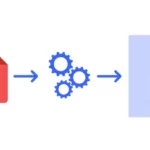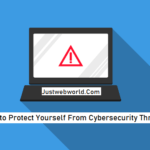In today’s digital age, remote work has become increasingly prevalent, offering flexibility and convenience to both employees and employers. However, with this newfound freedom comes the responsibility to ensure robust cybersecurity measures are in place.
A remote employer employs and manages a workforce that works primarily remotely. As a result, they must take proactive steps to secure sensitive information and protect their virtual infrastructure from potential threats.

In order to establish a secure foundation for remote work, it is critical to prioritize the protection of network connections. One of the effective tools that can be used for this is the ExpressVPN. Employers can create encrypted tunnels that shield data transmissions from prying eyes by using this or another reliable VPN. This solution ensures that all communications between remote employees and company resources remain secure and inaccessible to unauthorized individuals.
This guide will explore essential cybersecurity practices that should be implemented to mitigate risks and maintain a secure work environment.
Right password policies and two-factor authentication (2FA)
Passwords act as the initial barrier against unauthorized entry, forming the primary line of defense for protecting sensitive information and maintaining the integrity of digital systems. So, remote employers should enforce stringent password policies to minimize the risk of a breach.
Employees should be encouraged to create complex passwords, as Forbes reveals, that include a combination of letters, numbers, and special characters. Regular password updates should also be enforced, and password management tools like Bitwarden can simplify this process while maintaining strong security practices.
In addition to strong passwords, remote employers should implement a 2FA wherever possible. 2FA adds an extra layer of security by requiring employees to provide an additional form of verification, such as a temporary code sent to their mobile device, in addition to their password.
This is a simple yet effective measure that significantly reduces the risk of unauthorized access, even if a password is compromised.
Use secure file-sharing platforms and regularly update software and systems
Collaboration and file sharing are integral to remote work environments. However, it is essential to select secure file-sharing platforms that prioritize end-to-end encryption and robust access controls.
Remote employers should thoroughly research and choose platforms that comply with industry standards and provide secure sharing options to protect sensitive information from interception or unauthorized access.
Outdated software and systems are often riddled with security vulnerabilities that cybercriminals can exploit. Remote employers should establish a regular update and patch management process to ensure that all software and systems are up to date with the latest security patches.
This practice minimizes the risk of known vulnerabilities being exploited and strengthens the overall cybersecurity posture.
Educate employees on phishing awareness and secure remote devices
Phishing attacks remain one of cybercriminals most common and successful methods. Remote employers should conduct regular cybersecurity training sessions to educate employees about the risks associated with phishing and how to identify suspicious emails or links.
By fostering a culture of vigilance, employers can empower their remote workforce to recognize and report potential phishing attempts, reducing the likelihood of a successful attack.
Remote employers should implement comprehensive security measures for all remote devices used by employees. This includes enabling encryption, installing robust antivirus software, and enforcing regular device scans.
Additionally, remote employers should establish clear guidelines regarding using personal devices for work purposes and provide guidelines for securing these devices to prevent unauthorized access to sensitive company data.
As remote work continues to gain popularity, remote employers must prioritize cybersecurity measures to protect their virtual infrastructure.
By implementing the practices outlined in this guide, remote employers can significantly reduce the risk of cyber threats.
Protecting your remote work environment brings enhanced security and a range of convenient benefits, including data protection, business continuity, flexibility, cost-effectiveness, and improved talent acquisition and retention.
By investing in robust cybersecurity measures, remote employers can create a secure and productive work environment that supports the needs of their businesses and employees in an increasingly remote-centric world.
Maintaining a secure remote work environment protects sensitive data and ensures employers’ and employees’ productivity and peace of mind in an increasingly digital world.





